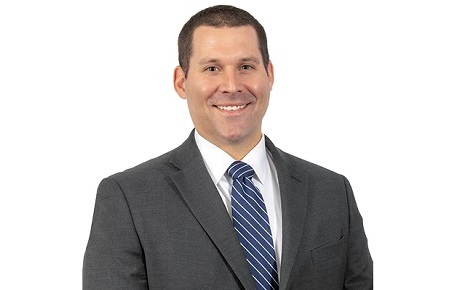“The power of data has only grown with the explosion of what is available and what is tracked over time,” according to Kirk Conrad, BMS’s global head of analytics, who in a recent interview with Reinsurance News, discussed the importance of data and analytics within the reinsurance industry.
 When asked if he believes whether or not the industry has been proactive enough with its investments in digital technologies and advanced analytics, Conrad said: “The industry has heavily invested in technology and analytics, especially in recent years, but there is still a strong challenge in identifying what provides real value and what is just a shiny new technology with limited practical benefit.
When asked if he believes whether or not the industry has been proactive enough with its investments in digital technologies and advanced analytics, Conrad said: “The industry has heavily invested in technology and analytics, especially in recent years, but there is still a strong challenge in identifying what provides real value and what is just a shiny new technology with limited practical benefit.
“For some, this results in lack of action in moving forward, for others there is a continual chase, without a strategy, to implement something that aligns with a real need – the industry can do more here.
“Clearly, there are advancements happening throughout the industry and innovation is now creating value across the value chain more than ever before. I do not see any reason to believe these trends will slow down or stop in the future.”
He also believes that firms that do not find ways to efficiently use the data and information available are likely to be weighed down by inefficiency and an informational disadvantage.
Conrad also discussed that some of the ways in which data and the use of advanced analytics can help insurers unlock emerging risks is through social media, sensors, experience data and advanced tools which create new ways to monitor trends locally and across the world.
“That connectivity creates a chance to see real time development of new and emerging risks both systemic and non-systemic. Traditional insurance has had reasonably defined boundaries that move relatively slowly over time in concert with the legal system and supply and demand,” he continued.
“Systemic risk exposures like cyber and pandemics seem to have ever changing boundaries that require more monitoring and a more detailed understanding to keep pace and predict what is likely to happen now and in the future.
“The industry must find ways to monitor activity that can better align with the ever-expanding boundaries of what we know and will learn in the future. This challenge will spur innovation as there are significant risks to manage that have ripple effects throughout the economy.”
To ensure the industry is making the most of the information available to them, Conrad believes that insurers must understand the limitations and weaknesses of data along with the strengths.
He also noted that it’s easy to fall in love with flashy or buzzword-worthy data or analytical tool output, but not have that aligned with the answers you really need to achieve your goals and objectives.
He said: “That quick embrace can easily fall apart if we do not interrogate the information we are looking at and fully understand the limitations both within it and in its use going forward.
“The quality and reliability of the data is important to make sure the information is accurate and is also representative of what you really need.
“We must take ownership in the process and value creation we are building rather than just relying on shiny new tools and data and assuming everything behind the scenes works.”
He sees the next big breakthrough within the field of analytics taking place through the growing amount of data captured, cheaper access to that data and increased connectivity to the internet.
Conrad also explained that there are huge opportunities to better understand risks, reduce and minimise losses, and better personalise the insurance offering.
“Efficiently processing and making use of this new and ever-growing set of data will produce breakthroughs in understanding the tremendous power of this information and help us better understand emerging risks and technologies into the future.“
“Analytical techniques to capture, organise and make use of this data will deliver value and go above and beyond where we sit today in our ability to use this information,” he said.


